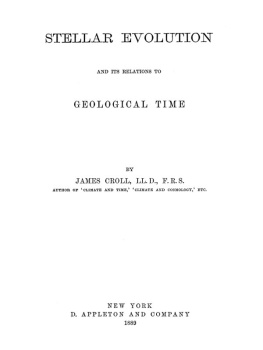The Project Gutenberg eBook, Sex and Society, by William I. Thomas
This eBook is for the use of anyone anywhere at no cost and with
almost no restrictions whatsoever. You may copy it, give it away or
re-use it under the terms of the Project Gutenberg License included
with this eBook or online at www.gutenberg.net
Title: Sex and Society
Author: William I. Thomas
Release Date: February 13, 2005 [eBook #15015]
Language: English
Character set encoding: ISO-8859-1
***START OF THE PROJECT GUTENBERG EBOOK SEX AND SOCIETY***
E-text prepared by Audrey Longhurst, William Flis,
and the Project Gutenberg Online Distributed Proofreading Team
SEX AND SOCIETY
STUDIES IN THE SOCIAL
PSYCHOLOGY OF SEX
BY
WILLIAM I. THOMAS
Associate Professor of Sociology in The University of Chicago
The University of Chicago Press
Chicago, Illinois
1907
Fourth Impression 1913
AUTHOR'S NOTE
These studies have been published in various journals at different times. They are reprinted together because there is some demand for them, and they are not easily accessible. In preparing them for publication in the present form, some of them have been expanded and all of them have been revised.
While each study is complete in itself, the general thesis running through all of them is the samethat the differences in bodily habit between men and women, particularly the greater strength, restlessness, and motor aptitude of man, and the more stationary condition of woman, have had an important influence on social forms and activities, and on the character and mind of the two sexes.
"Organic Differences in the Sexes" appeared in the American Journal of Sociology, III, 31ff., with the title, "On a Difference in the Metabolism of the Sexes;" "Sex and Primitive Social Control," ibid., III, 754ff.; "Sex and Primitive Industry," ibid., IV, 474ff.; "Sex and Primitive Morality," ibid., IV, 774ff.; "The Psychology of Modesty and Clothing," ibid., V, 246ff.; "The Adventitious Character of Woman," ibid., XII, 32ff.; "The Mind of Woman and the Lower Races," ibid., XII, 435ff.; "The Psychology of Exogamy," in the Zeitschrift fr Socialwissenschaft, V, 1ff., with the title, "Der Ursprung der Exogamie;" "Sex and Social Feeling," in the Psychological Review, XI, 61ff., with the title, "The Sexual Element in Sensibility." Portions of a paper printed in the Forum, XXXVI, 305ff., with the title, "Is the Human Brain Stationary?" are incorporated in the paper on "The Mind of Woman and the Lower Races," and portions of a paper printed in the American Journal of Sociology, IX, 593ff., with the title, "The Psychology of Race-Prejudice," are incorporated in the paper on "Sex and Social Feeling." I acknowledge the courtesy of the editors of these journals for permission to reprint.
W.I.T.
TABLE OF CONTENTS
ORGANIC DIFFERENCES IN THE SEXES
SEX AND PRIMITIVE SOCIAL CONTROL
SEX AND SOCIAL FEELING
SEX AND PRIMITIVE INDUSTRY
SEX AND PRIMITIVE MORALITY
THE PSYCHOLOGY OF EXOGAMY
THE PSYCHOLOGY OF MODESTY AND CLOTHING
THE ADVENTITIOUS CHARACTER OF WOMAN
THE MIND OF WOMAN AND THE LOWER RACES
INDEX
ORGANIC DIFFERENCES IN THE SEXES
A grand difference between plant and animal life lies in the fact that the plant is concerned chiefly with storing energy, and the animal with consuming it. The plant by a very slow process converts lifeless into living matter, expending little energy and living at a profit. The animal is unable to change lifeless into living matter, but has developed organs of locomotion, ingestion, and digestion which enable it to prey upon the plant world and upon other animal forms; and in contrast with plant life it lives at a loss of energy. Expressed in biological formula, the habit of the plant is predominantly anabolic, that of the animal predominantly katabolic.
Certain biologists, limiting their attention in the main to the lower forms of life, have maintained very plausibly that males are more katabolic than females, and that maleness is the product of influences tending to produce a katabolic habit of body.1 If this assumption is correct, maleness and femaleness are merely a repetition of the contrast existing between the animal and the plant. The katabolic animal form, through its rapid destruction of energy, has been carried developmentally away from the anabolic plant form; and of the two sexes the male has been carried farther than the female from the plant process. The body of morphological, physiological, ethnological, and demographic data which follows becomes coherent, indeed, only on the assumption that woman stands nearer to the plant process than man, representing the constructive as opposed to the disruptive metabolic tendency.2
The researches of Dsing,3 supplementing the antecedent observations of Ploss,4 and further supplemented by the ethnological data collected by Westermarck,5 seem to demonstrate a connection between an abundance of nutrition and females, and between scarcity and males, in relatively higher animal forms and in man. The main facts in support of the theory that such a connection exists are the following: Furriers testify that rich regions yield more furs from females and poor regions more from males. In high altitudes, where nutrition is scant, the birthrate of boys is high as compared with lower altitudes in the same locality. Ploss has pointed out, for instance, that in Saxony from 1847 to 1849 the yield of rye fell, and the birth-rate of boys rose with the approach of high altitudes. More boys are born in the country than in cities, because city diet is richer, especially in meat; Dsing shows that in Prussia the numerical excess of boys is greatest in the country districts, less in the villages, still less in the cities, and least in Berlin.6 In times of war, famine, and migration more boys are born, and more are born also in poor than in well-to-do families. European statistics show that when food-stuffs are high or scarce the number of marriages diminishes, and in consequence a diminished number of births follows, and a heightened percentage of boys; with the recurrence of prosperity and an increased number of marriages and births, the percentage of female births rises (though it never equals numerically that of the males).7 More children are born from warm-weather than from cold-weather conceptions,8 but relatively more boys are born from cold-weather conceptions. Professor Axel Key has shown from statistics of 18,000 Swedish school children that from the end of November and the beginning of December until the end of March or the middle of April, growth in children is feeble. From July-August to November-December their daily increase in weight is three times as great as during the winter months.9 This is evidence in confirmation of a connection between maleness, slow growth, and either poor nutrition or cold weather, or both. Professor Key's investigations10 have also confirmed the well-known fact that maturity is reached earlier in girls than in boys and have shown that in respect of growth the ill-nourished girls follow the law of growth of the boys. Growth is a function of nutrition, and puberty is a sign that somatic growth is so far finished that the organism produces a surplus of nutrition to be used in reproduction. Organically reproduction is also a function of nutrition, and, as Spencer pointed out, is to be regarded as discontinuous growth. The fact than an anabolic surplus, preparatory to the katabolic process of reproduction, is stored at an earlier period in the female than in the male, and that this period is retarded in the ill-nourished female, is a confirmation of the view that femaleness is an expression of the tendency to store nutriment, and explains also the infantile somatic characters of woman. Finally, the fact that polyandry is found almost exclusively in poor countries, coupled with the fact that ethnologists uniformly report a scarcity of women in those countries, permits us to attribute polyandry to a scarcity of women and scarcity of women to poor food conditions.


















